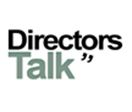The Times
Forex trader loses £1.8 billion of assets amid currency rout: Shares in specialist foreign exchange fund Manager Record fell heavily as it revealed that it lost £1.8 billion of assets this week when a large investor withdrew funds because of the sharp moves in global currencies.
Oil price at new low yet motorists are being hit in pocket: British motorists are not fully benefitting from the plunging cost of crude oil because refineries have ramped up their profit margins.
Pound and dollar rally as China cuts interest rates: The pound and the dollar staged a comeback as a new attempt by China to stoke its flagging economy led to a rise in major currencies and European markets.
The great hospital shop rip-off: Two of the country’s biggest retailers are routinely charging customers up to 50% more for goods in hospital shops compared with their stores on the high street, an investigation has found.
Discount stores buoyant as falling food prices drag down rivals’ sales: Discount stores have continued to steal a march on their larger rivals as falling prices and slow growth become “the new normal”, according to the latest sales figures.
Cameron’s starter homes won’t help average earners: Rising house prices will mean that the government’s starter homes initiative will be unaffordable for families on average incomes in almost 60% of local authorities in England.
U.S. house sales rise but prices are slipping: America’s housing market continues to recover with sales rising, but price increases are subdued.
Big fish at the top of pay ratios: The media and entertainment group Discovery Communications had the highest ratio of Chief Executive pay to median worker pay in the U.S. The company, which ran Shark Week on its Discovery Channel this month, had a pay ratio of 1,951 to one, with David Zaslav, the Chief Executive, earning $156 million in 2014 while median worker pay was $80,000.
The Independent
RSA Insurance agrees £5.6 billion bid by rival insurer Zurich in triumph for Stephen Hester: RSA Insurance has approved a £5.6 billion bid by its rival Zurich in the biggest European takeover so far this year.
Poundland’s £55 million takeover of rival 99p stores cleared by competition watchdog: Poundland’s £55 million takeover of rival 99p Stores has finally been given the go-ahead by the competition watchdog after a four-month investigation.
Morrisons wins Advertising Standards Authority verdict but Aldi still walks tall: A complaint from Aldi claiming that a rival supermarket’s price-match scheme was unfair has been thrown out by the Advertising Standards Authority (ASA).
Financial Times
Regulators reject $6.8 billion U.S. utility deal: The deal frenzy in America’s utility sector suffered a serious setback after a local regulator blocked Exelon’s acquisition of Pepco, a $6.8 billion deal which would have created one of the largest utility companies in the U.S.
Transocean to suspend dividends as losses deepen: Transocean, one of the world’s largest offshore drilling contractors, has warned that it expects to report a loss of more than $2.1 billion and plans to stop paying its dividend for the rest of the year, as it wrestles with the effects of the slump in oil prices.
Oil price drop leads to renewed speculation on Saudi riyal: Plummeting oil prices have led to renewed speculation against the Saudi riyal, heaping pressure on Riyadh as it burns through its foreign reserves and taps domestic debt markets to make up for a widening budget deficit.
Potash producer Uralkali plans $1.3 billion share buyback: Uralkali, the world’s largest potash producer by output, is planning its second billion-dollar share buyback this year in a likely prelude to its delisting from London.
U.S. farm incomes cut by half as low grain prices bite: An extended run of low grain prices will slash U.S. farm incomes by more than half from their peak, the government said, deflating a surge in land values and pressuring fertiliser and equipment makers.
Best Buy shares soar on robust domestic demand: Best Buy’s decision to pull out of China and refocus on the U.S. market paid dividends in the second quarter as earnings beat market expectations, sending shares in the electronics retailer up as much as 17%.
FDA tells food start-up Hampton Creek to change Just Mayo brand: Mayonnaise cannot be called “mayo” unless it contains eggs, according to U.S. food regulators, confounding attempts by a San Francisco food start-up to market its egg-free alternative to the popular spread as “Just Mayo”.
Lex:
Regus: space race: Regus rents functional offices at upmarket locations in over half the countries in the world. Its short-let offices are dependable enough — but perhaps dull next to more hip shared workspace start-ups such as WeWork (free beer!) or Hubble’s app to rent spare desks in cool creatives’ offices. Regus, with 2,500 sites, is the biggest provider in a fragmented market. Its nearest competitor, ServCorp of Australia, has just 130 sites. Shares in both trade at an enterprise value of eight times earnings before interest, tax depreciation and amortisation. Regus also has Silicon Valley-style growth plans, from 2,500 locations to over 20,000 — though without any timeframe as yet. It cites Starbucks and McDonald’s as growth benchmarks and defines its target market as anyone who works. Regus provides the same predictably consistent product, as would its role models. More than 90% of its leases are flexible or operated through partnerships — helpful when new sites cost about $0.5 million a pop. This time, Regus generates cash flow and has low net debt of just 0.5 times trailing ebitda. But it still works on the belief that if you build it they will come.
Best Buy: what’s in store: The turnround at Barnes & Noble has shown that there is room for only one national physical retailer of books. For household electronics and appliances, Best Buy is showing the same kind of resilience. On Tuesday, the once-beleaguered chain reported surprisingly strong second-quarter sales, sending its shares up 15% (aided by a broader market recovery after Monday’s rout). An important factor in the quarter was the U.S. economy which, for all the worry about emerging markets, is expanding at a steady clip. Yet, Best Buy has also discovered that having stores need not be a drag. Yet, all those products that more prosperous Americans want (and can now afford) can be bought online from Amazon at cut-rate prices. And so Best Buy has invested in the store experience to lure shoppers. As the company has noted, the fast pace of new product introductions and their complexity means some consumers want professional advice before spending hundreds (or thousands) of dollars on whizbang gadgets. Vendors such as Apple, Samsung and Microsoft have set up spaces to show their wares. NPD, the research firm, has shown consistently that sales by retailers of consumer electronics are declining by between 1 and 5% annually. The pie is shrinking. The premium on clever execution is more important than ever and, for now, that favours Best Buy.
Antofagasta: copper bottomed: If a diversified miner like BHP Billiton is cutting costs and capital expenditure as commodity prices slide, how much worse can it be for Antofagasta, the Chilean copper miner with a market value a tenth of BHP’s? Not as bad as its one-quarter share price fall this year implies, even if it acts as if it inhabits a different world. Like all miners, it has cut costs and capex in a nod to China’s slowdown in construction and manufacturing — even though purchases by Chinese clients, accounting for only a fifth of sales, are yet to slow. Its net production costs actually rose to $1.53 a pound — against a spot price of about $2.25 — on lower output resulting from declining ore quality. Now for a big difference: unlike many peers, it could still lavish growth capex on the ramp-up of its Antucoya mine and other projects in hand. That is because Antofagasta has flexibility: its balance sheet is robust and cash flow adequate, despite reduced production in the first half. The sale of its water division and better working capital management boosted net cash at end-June. It could afford to pay Barrick Gold $1 billion for half of its top-notch Zaldívar copper mine in Chile. True, rising taxes partly from capital gains on the water division sale will drain cash. It could end up with net debt (from net cash) by year-end. Antofagasta’s determined investment in the down cycle is akin to that of another copper miner First Quantum.
Lombard:
Quiet coach: Suppose, for example, that the Financial Conduct Authority has exempted the bank-owned brokerage where you work from EU bonus rules. As a result, you can get a bonus in cash rather than shares that is not subject to lengthy deferrals. Lucky you. This would treble the number of financial professionals covered, which would be unnecessary and unintended. The purpose of the bonus restrictions was to discourage risky behaviour by banks implicitly underwritten by taxpayers, not penalise brokers and fund Managers capable of going bust unobtrusively in a corner. The commission is expected to amend the bonus rules with characteristic speed. So there will be a decade or so when Dutch Green MEPs with chin whiskers and composting lavatories can demand the rules be enforced. But only if they are aware of that opportunity.
Laggan behind: Since Brent crude slid below $84 per barrel last November, big oil companies have been cancelling projects and attacking costs with the zeal of the convert. That is bad news for companies such as Petrofac and AFW, which assemble and maintain the plumbing used to extract and process hydrocarbons. Petrofac went first this week, announcing a $183 million first-half pretax loss, reflecting a stonking new loss of $263 million on Laggan-Tormore, a Shetland gas plant it has been building for Total. Mr Asfari has vowed never to take on another fixed-price contract in the North Sea, like a diner swearing never again to patronise a restaurant that served him a dodgy truffle. The shares of both groups have fallen about 34% since November, more than most of their clients, whose refining arms benefit from lower input costs. When demand for oil is weak, the appetite for chalk and cheese is even weaker.
The Daily Telegraph
Panic selling returns to fragile markets as investors fret China’s rate cut won’t revive global fortunes: Panic selling returned to stock markets on Tuesday night after a thumping U.S. relief rally fizzled out, leaving fragile investors still reeling from the after-effects of “Black Monday”.
No interest rate rise until 2017? Experts react to China’s Black Monday: Investors breathed a sigh of relief on Tuesday after China cut interest rates for the fifth time since November and lowered the amount of reserves banks must hold.
Blinkx Chief Executive suffers shareholder rebellion: The Chief Executive of Blinkx has suffered a major shareholder rebellion just a day after the company’s shares slumped on a profits warning.
Fastjet fleet plans take-off after buying its first plane: Fastjet, the budget airline that aspires to become a pan-African carrier, has passed a major milestone and struck a deal to buy its first plane.
BHP Billiton profits hammered by commodities slump and China downturn: Profits have plunged at mining giant BHP Billiton, despite significant cost cutting, amid falling demand for raw materials in China.
Sharp copper price fall takes toll on miner Antofagasta: FTSE 100 mining giant Antofagasta said revenue dropped by almost a third to $1.8 billion (£1.1 billion) in the first half of the year, as falling copper prices and disruption to operations took their toll.
Challenger bank Shawbrook beefs up with HSBC veteran: Shawbrook Bank is adding some more heft to its board with the appointment of HSBC veteran Paul Lawrence.
China cuts rates to stem crisis, but doubts grow on foreign reserve buffer: China has injected $100 billion of liquidity into the country’s financial system and cut interest rates to records lows in a “shock-and-awe” bid to restore confidence, but worries persist that even this may not be enough to avert a crunch as capital flight surges.
The Guardian
Asia’s richest man Wang Jianlin heads list of big losers in China crash: Asia’s richest person was the largest loser in Monday’s stock market crash in China, after stocks in the region fell dramatically.
Hedge funds set to bank millions by short selling during London share slump: Hedge funds are set to bank tens of millions of pounds from the slump in share prices in London, having bet almost £18 billion that the FTSE 100 would fall.
John Lewis Boss: we will overtake Ikea as Britain’s biggest homeware retailer: Move over Billy and never mind the meatballs, the Boss of John Lewis has warned Ikea that the department store is aiming to take its place as Britain’s biggest home and furniture retailer.
Google’s location-aware tablet, Project Tango, goes on sale in U.K.: Google’s 3D-mapping tablet, Project Tango, is going on sale in the U.K. for the first time as the company widens availability of the new technology’s developer kit.
Daily Mail
China makes fifth interest rate cut since November as benchmark Shanghai stock market falls 22% in four days: Beijing announced an emergency cut in interest rates – sending shares around the world higher despite another rout on Chinese stock markets.
Investors halt the carnage on U.K. stock market as shares bounce back despite more massive falls in Asia: The prolonged sell-off of London shares came to a halt as China’s central bank cut interest rates in an effort to shore up the economy after more carnage on Asian stock markets overnight.
Oil price collapse stemmed but analysts predict further tumble as supply outstrips demand: A stemming of the oil price collapse did not stop analysts predicting a further tumble, as production continues to outstrip expected demand.
De Beers plans festive campaign amid concern over weak demand in major markets: De Beers will invest heavily in promotion and advertising to boost sales after worries about weak demand for diamonds in major markets, including the U.S. and China, writes Laura Chesters.
Daily Express
Savers warned over ‘catastrophic’ effects of falling markets on pensions: Sinking stock markets have slashed the value of pension pots and savers now run the risk of catastrophic and irreparable damage to their retirement, experts have warned.
Richard Branson reveals the real reason he bought Caribbean paradise home Necker Island: British entrepreneur Sir Richard Branson bought his paradise island in the Caribbean because he wanted to impress his future wife, he has revealed.
Super-rich Arsenal and Chelsea Owners join Bill Gates in huge losses: The global crash in stock markets saw the value of the world’s super-rich eroded by billions of pounds in just a few hours.
Panic-buy bottled water and tins of food, says Gordon Brown’s ex-adviser amid China crisis: A former adviser to ex-Prime Minister Gordon Brown has urged Britons to begin stocking up on a month’s worth of “bottled water and tinned goods” – because China’s financial woe will cause worldwide economic carnage.
The Scottish Herald
Social Investment Scotland provides record amount of funding: Social Investment Scotland has revealed that it provided record funding of £7.5 million to social enterprises, charities and community organisations in the year to March.
Scottish Government ‘goldplated’ green rules: Scotland’s growers are being pinched between poor market returns and costly new EU ‘greening’ regulations – but the Scottish Government has the power to make at least the latter less painful.
Administrators strike deal for Cumberland and Dumfriesshire Farmers Mart: The auctioneering business of Cumberland and Dumfriesshire Farmers Mart (C&D) has been sold by administrators FRP to C&D Auction Marts and one of Scotland’s oldest auction firms, Thomson, Roddick and Laurie.
Arran Aromatics recruits leading beauty business Executive to lead overseas growth push: Arran Aromatics has appointed a beauty trade heavy hitter to lead the perfume maker’s push for growth in international markets following a challenging few years for the firm.
The Scotsman
Controversial Forth gas project on hold: The energy firm behind a controversial bid to burn coal under the Firth of Forth to create gas blamed political uncertainty as it said work on a planning application is now likely to be postponed.
Petrofac into red after Shetland project loss: Oilfield contractor Petrofac has fallen to a heavy half-year loss after counting the cost of its delayed gas plant on Shetland.
Braveheart Founder Geoffrey Thomson to step down: Investment firm Braveheart said long-serving Chief Executive Geoffrey Thomson had stepped down from his role as the firm announced losses of more than £760,000 in its latest financial year.
Jobs at risk as e-cig firm Blu shuts Edinburgh site: Imperial Tobacco said its e-cigarette brand Blu is to close its Edinburgh site next month, putting 55 jobs at risk.
City A.M.
Gulf Marine Services boosted by positive outlook for second half: Gulf Marine Services (GMS) revealed increased revenues and slightly decreased earnings for the first half of the year.
Puretech’s first results post-float show medical firm in good health: Healthcare research company Puretech Health released its maiden half-year results, reporting details of the expansion that has followed the firm’s flotation in January.
Virtual offices create very real profits at Regus: Shares in office outsourcing firm Regus jumped after the company reported an 86% growth in underlying profits and double-digit revenue growth during the first half of the year.




